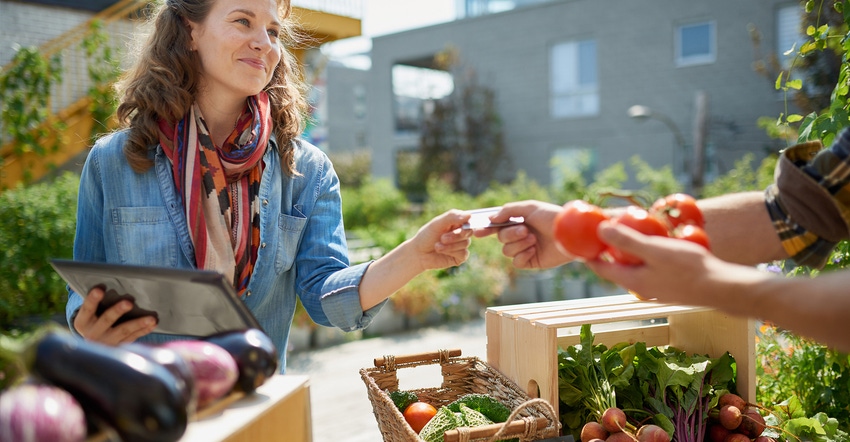July 26, 2017

Massachusetts’ low-income families will have better access to fresh, healthy foods, and local farms will have more sales. That’s the bottom line of $1.35 million in fiscal year 2018 funding for the Bay State’s Healthy Incentives Program. Those funds were in the 2018 state budget signed last week by Gov. Charlie Baker.
When SNAP recipients use their EBT cards to purchase fruits and vegetables at participating farmers markets, farm stands, mobile markets and Community Supported Agriculture programs, HIP automatically credits their account with a one-to-one match of up to $80 per month. Earned HIP incentives can then be used toward any future SNAP purchase.
HIP is a project of the Massachusetts Department of Transitional Assistance. It’s done in partnership with the Department of Agricultural Resources and the Department of Public Health, plus a coalition of more than 40 organizations, including Community Involved in Sustaining Agriculture (CISA), Project Bread, the Food Bank of Western Massachusetts, the Federation of Massachusetts Farmers Markets and University of Massachusetts’ Stockbridge School of Agriculture.
A success and a national first
Massachusetts is the first in the nation to offer a statewide healthy incentive to SNAP clients, issuing the benefit on an EBT card. While HIP is still being gradually rolled out statewide, more than 150 farm market retailers are already set up to process the new benefit, and more are being added each week. See ag markets map.
The program is already showing signs of success. Just a month into the market season, more than $250,000 of HIP benefits have been earned. “HIP is an unqualified success for the Brockton Farmers Market,” says Market Manager Jon Van Kuiken. In the past two years combined, the market had fewer than 30 sales of local food to SNAP recipients.
On the market’s first day of the season, more than 80 people came to use their SNAP benefits to earn HIP benefits, he reports. “Our farmers sold most of their produce by 1:30. People loved the program! Everyone was appreciative, and many were very excited.”
SNAP recipients have been lining up to purchase food as much as an hour before the farmers market in Boston’s Copley Square opens each week “HIP has definitely increased my sales,” notes Nicole McKinstry from McKinstry’s Market Garden in Chicopee, Mass.
Meeting an urgent urban need
“We’re seeing new customers regularly on a daily basis,” adds McKinstry. “Most are so excited about buying local fruit and vegetables that they now can afford — many with children who never had fresh fruits and vegetables before. Seniors also are very appreciative of this program.”
Only one-quarter of Massachusetts adults eat the federally recommended five servings of fruits and vegetables per day. That gap is significantly higher in low-income households, according to Massachusetts Department of Transitional Assistance record. Disparities in access by race and ethnicity exacerbate the problem further in many communities.
That nutritional deficit contributes to increases in obesity and its related chronic preventable diseases, including diabetes and heart disease. HIP’s goal is to improve health outcomes for some of the most vulnerable communities, by making fresh, healthy food — even vegetable plants — more accessible.
“Now that I know what HIP is, I’m making sure to buy fruits and vegetables first each month,” testifies Marie Loranger of Monson. She was one of the first people to receive HIP incentives when she purchased vegetables in April. “My doctor has told me I need to eat more healthy fruits and vegetables.
“My response has been that it’s too expensive. Now I have no excuse! I’m buying more vegetables and freezing them so I can use them all year.”
Source: Massachusetts Food System Collaborative
You May Also Like




